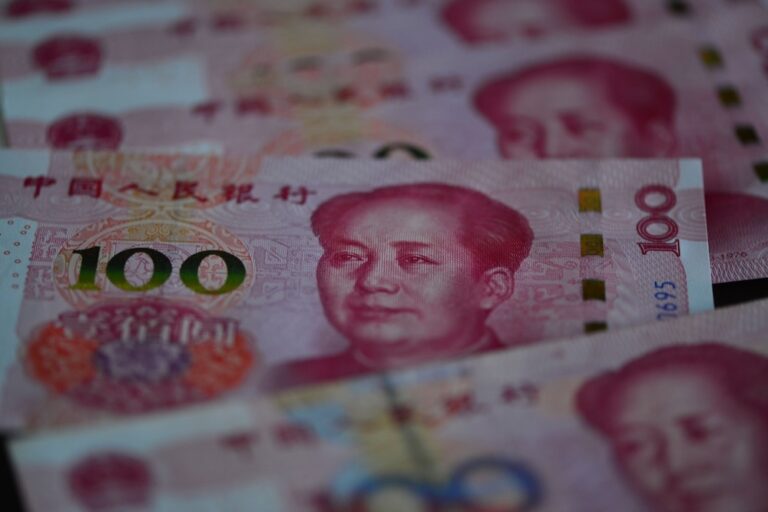(RSF/IFEX) – On the eve of the 19th anniversary of the Tiananmen Square massacre of 4 June 1989, Reporters Without Borders calls for the release of the four journalists and cyber-dissidents who are in jail for taking a position on this taboo subject and condemns the relentless censorship about the massacre, in which at least […]
(RSF/IFEX) – On the eve of the 19th anniversary of the Tiananmen Square massacre of 4 June 1989, Reporters Without Borders calls for the release of the four journalists and cyber-dissidents who are in jail for taking a position on this taboo subject and condemns the relentless censorship about the massacre, in which at least 2,000 Chinese students and workers died.
All the Chinese media are forbidden to refer openly to what was a major event in contemporary Chinese history. Censorship is also extremely severe on the Internet.
“The Chinese authorities are trying to use the Olympic Games to make people forget what happened on 4 June 1989 in Tiananmen Square,” Reporters Without Borders said. “But the sports events and the festivities that will take place in this central Beijing square in August will not be able to erase this dark page in China’s history. It is deplorable that the Communist Party has spent the past 19 years using censorship and repression in an attempt to wipe out the memory of the Beijing Spring.”
The press freedom organisation added: “While the International Olympic Committee’s executive committee meets tomorrow in Athens, we asks its president, Jacques Rogge, to call for the release of prisoners of conscience before the start of the Beijing Olympics. Those freed should include journalist Shi Tao, who is serving a 10-year sentence for sending an email about the Tiananmen Square events.”
Reporters Without Borders, which gave a news conference in Athens on 30 May about the games, recently revealed that an IOC memo defended the choice of Tiananmen Square as the venue for an Olympic torch ceremony on the grounds that it was “one of the world’s most famous public squares.” The IOC also described the decision to start the Olympic marathon in Tiananmen Square as a matter for the Chinese. “The IOC is a sports organisation,” the memo said. “It is not appropriate for us to dictate the usage of sites that may have an historical and political significance for large numbers of people.”
As the Red Army’s tanks crushed the Beijing student uprising on 4 June 1989, the authorities launched a massive crackdown in which thousands of people were arrested. According to Human Rights Watch, at least 130 people are still in prison for taking part in the student insurrection.
The Chinese people are still prevented from making free use of the Internet to find out what happened on 4 June 1989 in Beijing and other Chinese cities. Any attempt to search for “Liu Si,” the Chinese abbreviation for 4 June, on the Baidu or Sohu search engines is completely blocked and results in the connection to the site being reinitialised.
If the same search is made on Sina or Google.cn, the overwhelming majority of results are not about the 1989’s bloody events but about Tiananmen Square as an historic place. The links to articles overtly about 4 June 1989 are blocked. When you click on these links, the connection is reinitialised.
No reference to 4 June is allowed in the press without specific permission from the government. Several senior members of the staff of the newspaper “Chengdu Wanbao” were fired in June 2007 for permitting the publication of an announcement on its website paying homage to the courageous mothers of 4 June – a reference to the mothers of the Tiananmen Square victims who defend their memory.
Shi Tao of the daily “Dangdai Shang Bao” (Contemporary Business News) is one of the journalists and cyber-dissidents who are in prison because of the stance they have taken on the massacre. Shi was convicted of “illegally divulging state secrets abroad” on 30 April 2005 because he forwarded an internal email message about Tiananmen Square anniversary coverage to a friend based outside the country.
Shi acknowledged forwarding the message, which warned of the dangers of social unrest and destabilisation linked to the return of dissidents to Beijing for the anniversary, but he disputed its confidential nature. Since his arrest on 24 November 2004 in the northeastern city of Taiyuan, he has been held in a detention centre in the southern city of Changsha, where he is forced to work.
Agence France-Presse has reported a reinforcement of the normal police presence in Tiananmen Square on the eve of the anniversary. Surveillance has also been stepped up outside the homes of several dissidents. Chen Xi, a dissident based in the in the central city of Guiyang, was prevented from boarding a flight to Beijing, where he had intended to participate in activities in solidarity with the victims.
“I could not go to Beijing but I will nonetheless protest at a distance to show our disapproval of the government,” he wrote on the overseas Chinese website Boxun. He said he planned to organise a silent gathering and commemorative activities on the Internet.
The same Boxun article also reported that surveillance of Qi Zhiyong, who lost a leg during the repression, was stepped up three weeks ago.
Ding Zilin, the mother of one of the massacre victims, posted an open letter to the authorities on the Tiananmen Mothers website ( http://www.tiananmenmother.org ) calling for the national flag to be flown at half mast in honour of the Tiananmen victims as it was for the victims of the recent earthquake.
On the anniversary of the Tiananmen Square massacre, Reporters Without Borders calls on the Chinese authorities to:
– release the 31 journalists and 48 cyber-dissidents who are currently in prison
– abolish press and Internet censorship about the events of 4 June 1989
– stop harassing journalists who participated in “Beijing Spring” and stop employing abusive measures (including house arrest, tailing and phone tapping) against them
– allow exiled journalists and dissidents to return to China in complete safety
– allow the Chinese and international press to report freely on the activities of dissident groups.


